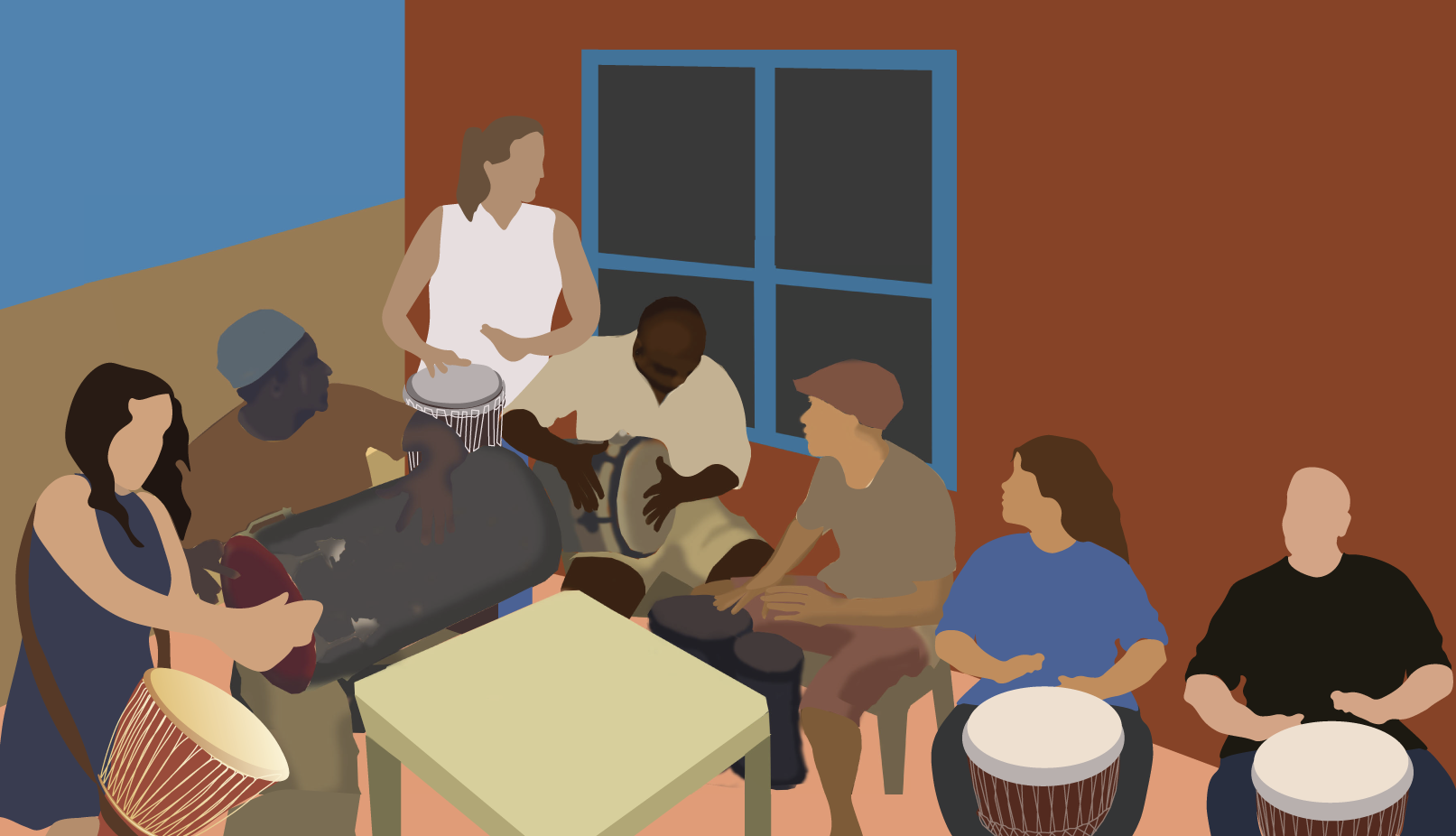All students are welcome to the weekly drum circles in the Multi-Faith and Spirituality Centre.
The Multi-Faith and Spirituality Centre is home to weekly community drum circles. Irene Feher, a Concordia University music professor, and Dylan Gitalis, who is learning facilitation techniques from a program with Music for People, both lead the event. Feher teaches voice, and joined the Drum Circle last year. The ultimate goal of these weekly music jams is to combat stress and isolation, and to build community.
“I believe so strongly in the power of music to enrich lives in so many ways,” Feher said. “Drumming grounds us, connects us, and the physical activity [is good for the body]. I feel the physical, emotional, cognitive and social benefits of drumming.”
Every Monday from 6 to 7 p.m., students from all programs are welcome to this event.
Although the event takes place in the Multi-Faith and Spirituality Centre, Feher said that the drum sessions are secular.
“We use the universal language of music, and don’t practice any particular style,” said Feher.
Feher continued that they don’t necessarily drum in Indigenous or African style, although the students are using African drums.
Feher explained that students attending the event use the “rhythm of community,” and the drumming styles emerge spontaneously, with the moment.
“I want us to reflect the mosaic at Concordia, this wonderful community we have of people from different religions and backgrounds,” said Feher.
The event usually garners around 10 to 12 students, but the room has the capacity for about 20 people.
Using drum circles as a therapeutic form of stress-relief has been studied before. One 2010 research paper published in the Canadian Journal of Music Therapy found that more than half of drum circle participants – who were all young adults in school – reported that their drum circle group helped the participants with stress, anger and lack of motivation. The same study found that some of the participants reported “therapeutic gains” in terms of their self-confidence and self-esteem.
“It’s an opportunity for students to come together, release their stress, have fun, and create sound in the moment,” said Feher. Feher explained that drum circles and music have been used for thousands of years to foster community.
When students engage in this activity, they eventually reach a state of flow, as Feher explained. Also known as “being in the zone,” when someone reaches that stage, they are extremely focussed on what they’re doing, and are no longer thinking about their everyday stresses.
“When you are completely engaged and immersed in an activity you enjoy, you become completely engaged in the present moment, and time slips away,” said Feher.
Feher explained when one is in a state of flow with a group of people, a connection is created between all of them; from there, students become freer to try different rhythms.
No previous experience in music is required in order to participate in the activity. There is no registration and the event is completely free. The weekly drum circles will be running until April 6, 2020.
Graphic by Salomé Blain
